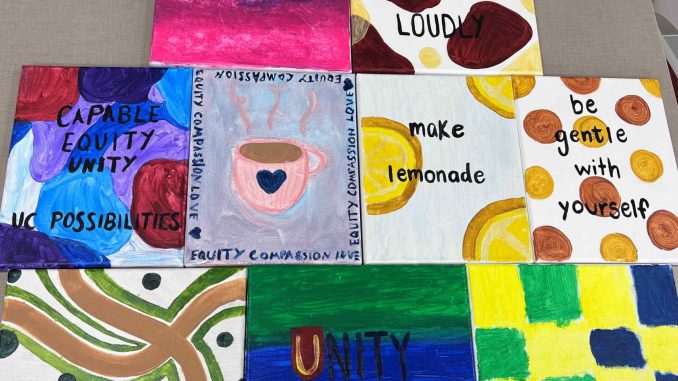
Details
Article by Kate Horan <kahoran@ursinus.edu>
How should we live together? Joining a new community at college, this core question calls us to live thoughtfully with others, and more than that, it calls us to contemplate what the word “relationship” means. A relationship is the state of being connected. The intention of the Office of Disability and Access’ Peer Mentor Program is to facilitate relationships within the Ursinus community, joining pairs of students who may find a connection. The program works to join mentors who want to give back to their community, having experienced their own uncertainty or hardship during their first year, with mentees who are concerned about navigating the social aspects of college.
ODA’s process for matching up mentors and mentees is always under development and changing. Depending on the number of applicants, ODA likes to facilitate mixers. Assistant Director of Disability and Access Joanna Timmerman says that the mixers “give students more agency in their matches” and allow students to “see if anyone just ‘clicks’ together!” However, Timmerman also likes to consider herself a “decent matchmaker!” The applications for mentors and mentees ask students what they hope to get out of their relationship and includes the types of activities the students would like to do together. This creates an idea of who might be a good fit. Dee Singley, Director of Disability Services and 504 Coordinator, and Timmerman have personally met all of the students in their program, getting to know their interests, majors, and schedules. Therefore, Singley and Timmerman have a good idea of which mentors and mentees share similarities. According to Timmerman, “Last year I was able to pair a mentor who was an athlete with a mentee who was going to be juggling theater and dance. While not the same interests, we felt the mentor would be able to (and very much so did!) provide guidance on how to balance time between academics and extra-curriculars.” Once the students are paired up, they can begin to participate in the experience of connecting and building a relationship with each other.
This experience will most definitely be different for mentors and mentees, but the experience will also be mutually beneficial. Both parties will gain something from the experience. According to Timmerman, ODA’s “hope for our mentors in this program is for them to build leadership skills and see themselves as someone who can and does serve their community in meaningful ways.” Timmerman would also like to shout out ODA’s mentors from last year (many of whom graduated), as they had 100% retention of mentees from fall to spring. Payton Fritz, a current sophomore and a mentor this year, finds this program to be very important. Fritz says, “It can be hard for some people to find their footing in college and sometimes it can ruin college experiences. Life at Ursinus is such a fun time and I want to help others have a great time like I do!” She states that a huge part of her freshman year was the experience of getting help from upperclassmen on a variety of things, and she would like to have the experience of passing that down.
While the experience of mentors is one of leadership, the experience of mentees is one of support. ODA’s hope for the mentees is for them to feel supported as they discover Ursinus, especially as they explore the abundance of opportunities that campus has to offer. “Our hope is that our mentees can realize that they are part of a significant community of students with disabilities on campus, which may help reduce feelings of loneliness or insecurity,” states Timmerman. Along with the goal of making mentees feel connected and confident, ODA sees the Peer Mentor Program as an avenue where students can see themselves in their mentor. According to Timmerman, mentees “can picture being a student leader and achieving success at Ursinus as a student with a disability.” Through this program, ODA wants all participants to feel “more confident in themselves and their decision to attend Ursinus!” Timmerman added.
What will I do? This core question calls us to contemplate the extent of our power to impact different communities. With the singular “I” especially, it can be a daunting question. Can just one person really make a difference? The mentors in ODA’s Peer Mentoring Program are exemplifying that this is indeed possible. They are demonstrating that each student is capable of positively impacting the campus community, starting with just one mentee. Making a difference does not have to be on a large scale, it can simply start with making a difference in one person’s life. This leads to a domino effect, causing a mentee to become a mentor and resulting in a larger impact than one previously thought was possible. These connections are invaluable because connections do not just strengthen relationships, but they also strengthen and unify the whole community. With the addition of this program, Ursinus is continuing to be a community full of support, connections, and students who can make a difference.
